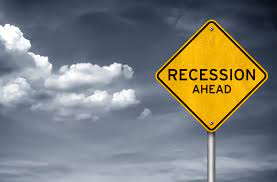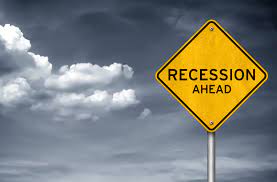
Citigroup Inc Chief Executive Jane Fraser said on Friday that Europe was more likely than the United States to enter a recession, joining other major bank CEOs this week in warning about the global economy's health.
Fraser, the CEO of the third-largest and most globally focused bank in the United States, recently returned from a globe tour that included stops in Asia, Europe, and the Middle East, where she claimed her conversations focused on "the three Rs."
"It's rates, it's Russia and it's recession," Fraser said, speaking at an investor conference in New York.
But Fraser said in Europe, "the energy side was really having an impact on a number of companies in certain industries that are not even competitive right now."
"Because of the cost of electricity and the cost of energy, some of them are shutting down operations. So Europe definitely felt more likely to be heading into a recession than you see in the U.S.," Fraser added.
In the United States, Fraser believes the issue is more about interest rates than a recession.
"It's certainly not our base case that it will be, but it's not easy to avoid either," Fraser added.
On Wednesday, JPMorgan & Chase Co. Chairman and CEO Jamie Dimon compared the present economic instability to a "storm," while Goldman Sachs President and Chief Operating Officer John Waldron stated on Thursday that the current economic turmoil is one of the most difficult he has ever faced.
In a post labelled "stop all hiring worldwide," Tesla Inc CEO Elon Musk added to the negative vibe, saying he had a "very awful feeling" about the economy and has to reduce approximately 10% of positions at the electric carmaker.
However, Cleveland Federal Reserve Bank President Loretta Mester stated on Friday that while she does not anticipate a "storm," "we must recognise that the risks of recession have increased."
Major central banks, who are already planning interest rate hikes to combat inflation, are also planning a coordinated withdrawal from key financial markets in a first-ever round of global quantitative tightening, which is expected to restrict credit and add stress to an already slowing global economy.
"It feels like the ECB is a few months behind where the Fed has been in getting its arms around inflation and without quite the same flexibility that U.S. has," Fraser said, referring to the European Central Bank.
The labour market in the United States remained solid in May, according to data released on Friday, with companies employing more people than expected and sustaining a fairly steady rate of salary increases. Stock indexes in the United States dipped on Friday as a strong jobs data reinforced the belief that the Federal Reserve will maintain its aggressive policy tightening path to lower decades-high inflation.
"When we look at what the clients are talking to us about from a macro perspective, I think the confidence is still pretty good amongst the CEOs and the CFOs," Fraser added.
Fraser also predicts that US equity markets will become less volatile, and that the Chinese government would undertake a new round of fiscal stimulus in the coming months as the country begins to emerge from COVID-19 pandemic-related lockdowns.
In China, Fraser stated that she "wouldn't be surprised to see fiscal stimulus action done."
(Source:www.usnews.com)
Fraser, the CEO of the third-largest and most globally focused bank in the United States, recently returned from a globe tour that included stops in Asia, Europe, and the Middle East, where she claimed her conversations focused on "the three Rs."
"It's rates, it's Russia and it's recession," Fraser said, speaking at an investor conference in New York.
But Fraser said in Europe, "the energy side was really having an impact on a number of companies in certain industries that are not even competitive right now."
"Because of the cost of electricity and the cost of energy, some of them are shutting down operations. So Europe definitely felt more likely to be heading into a recession than you see in the U.S.," Fraser added.
In the United States, Fraser believes the issue is more about interest rates than a recession.
"It's certainly not our base case that it will be, but it's not easy to avoid either," Fraser added.
On Wednesday, JPMorgan & Chase Co. Chairman and CEO Jamie Dimon compared the present economic instability to a "storm," while Goldman Sachs President and Chief Operating Officer John Waldron stated on Thursday that the current economic turmoil is one of the most difficult he has ever faced.
In a post labelled "stop all hiring worldwide," Tesla Inc CEO Elon Musk added to the negative vibe, saying he had a "very awful feeling" about the economy and has to reduce approximately 10% of positions at the electric carmaker.
However, Cleveland Federal Reserve Bank President Loretta Mester stated on Friday that while she does not anticipate a "storm," "we must recognise that the risks of recession have increased."
Major central banks, who are already planning interest rate hikes to combat inflation, are also planning a coordinated withdrawal from key financial markets in a first-ever round of global quantitative tightening, which is expected to restrict credit and add stress to an already slowing global economy.
"It feels like the ECB is a few months behind where the Fed has been in getting its arms around inflation and without quite the same flexibility that U.S. has," Fraser said, referring to the European Central Bank.
The labour market in the United States remained solid in May, according to data released on Friday, with companies employing more people than expected and sustaining a fairly steady rate of salary increases. Stock indexes in the United States dipped on Friday as a strong jobs data reinforced the belief that the Federal Reserve will maintain its aggressive policy tightening path to lower decades-high inflation.
"When we look at what the clients are talking to us about from a macro perspective, I think the confidence is still pretty good amongst the CEOs and the CFOs," Fraser added.
Fraser also predicts that US equity markets will become less volatile, and that the Chinese government would undertake a new round of fiscal stimulus in the coming months as the country begins to emerge from COVID-19 pandemic-related lockdowns.
In China, Fraser stated that she "wouldn't be surprised to see fiscal stimulus action done."
(Source:www.usnews.com)





